How to Start a Social Media Marketing Business: Complete Guide 2026
TL;DR - Quick Answer
36 min readTips you can use today. What works and what doesn't.
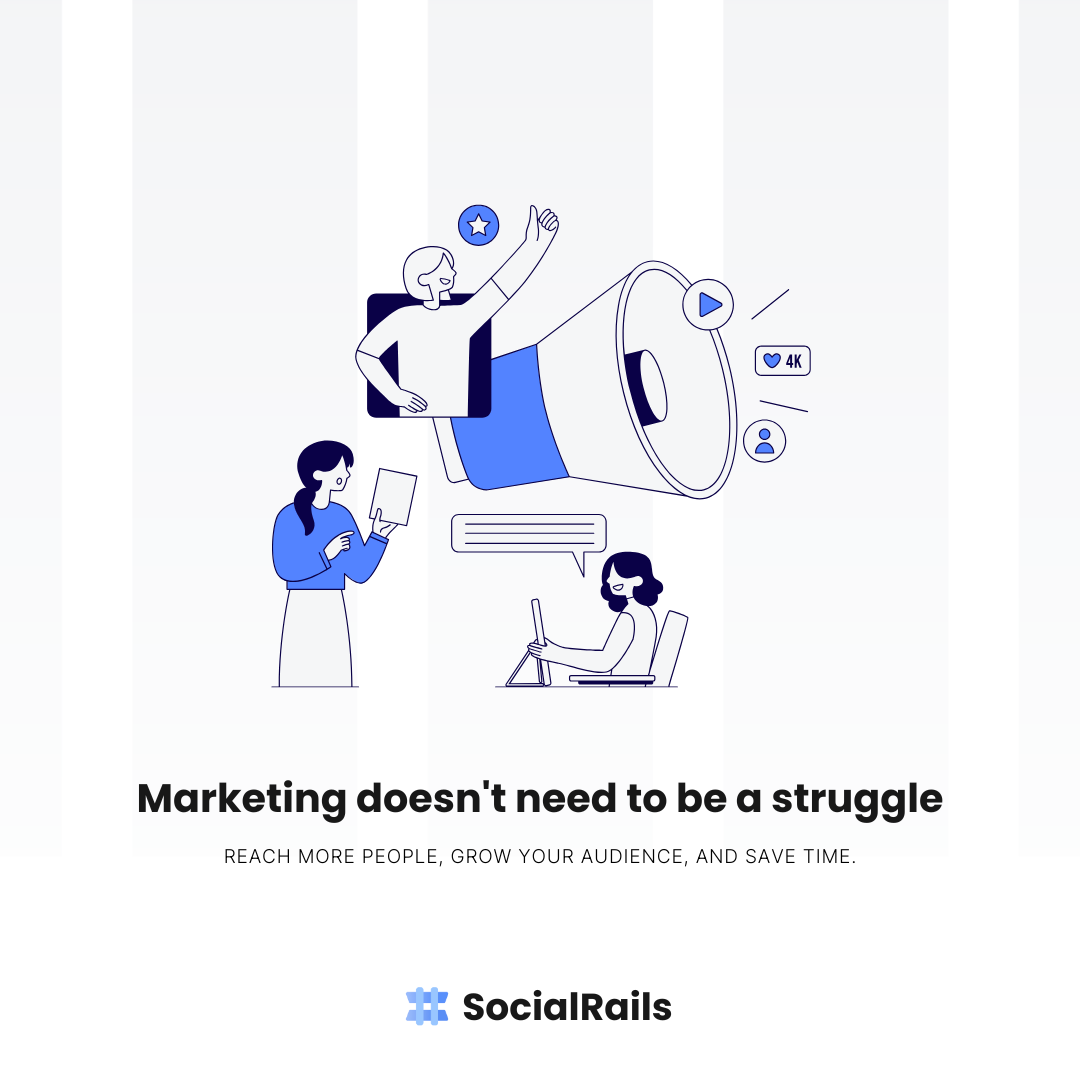
Why Start a Social Media Marketing Business?
The social media marketing industry continues to grow rapidly as businesses recognize the necessity of maintaining strong online presence. Small businesses alone spend over $10 billion annually on social media marketing services, creating significant opportunities for new agencies and freelancers.
Market Opportunity:
- Most businesses need social media help but lack internal expertise
- Demand exceeds supply for skilled social media professionals
- Low startup costs compared to traditional businesses
- Scalable business model with recurring revenue potential
- Location-independent work opportunities
Create content, post everywhere
Create posts, images, and carousels with AI. Schedule to 9 platforms in seconds.
Start your free trialFor a comprehensive step-by-step guide to starting your agency, including legal setup, client acquisition, and scaling strategies, check out our detailed How to Start a Social Media Marketing Agency guide.
Business Structure and Legal Setup
Choosing Your Business Structure
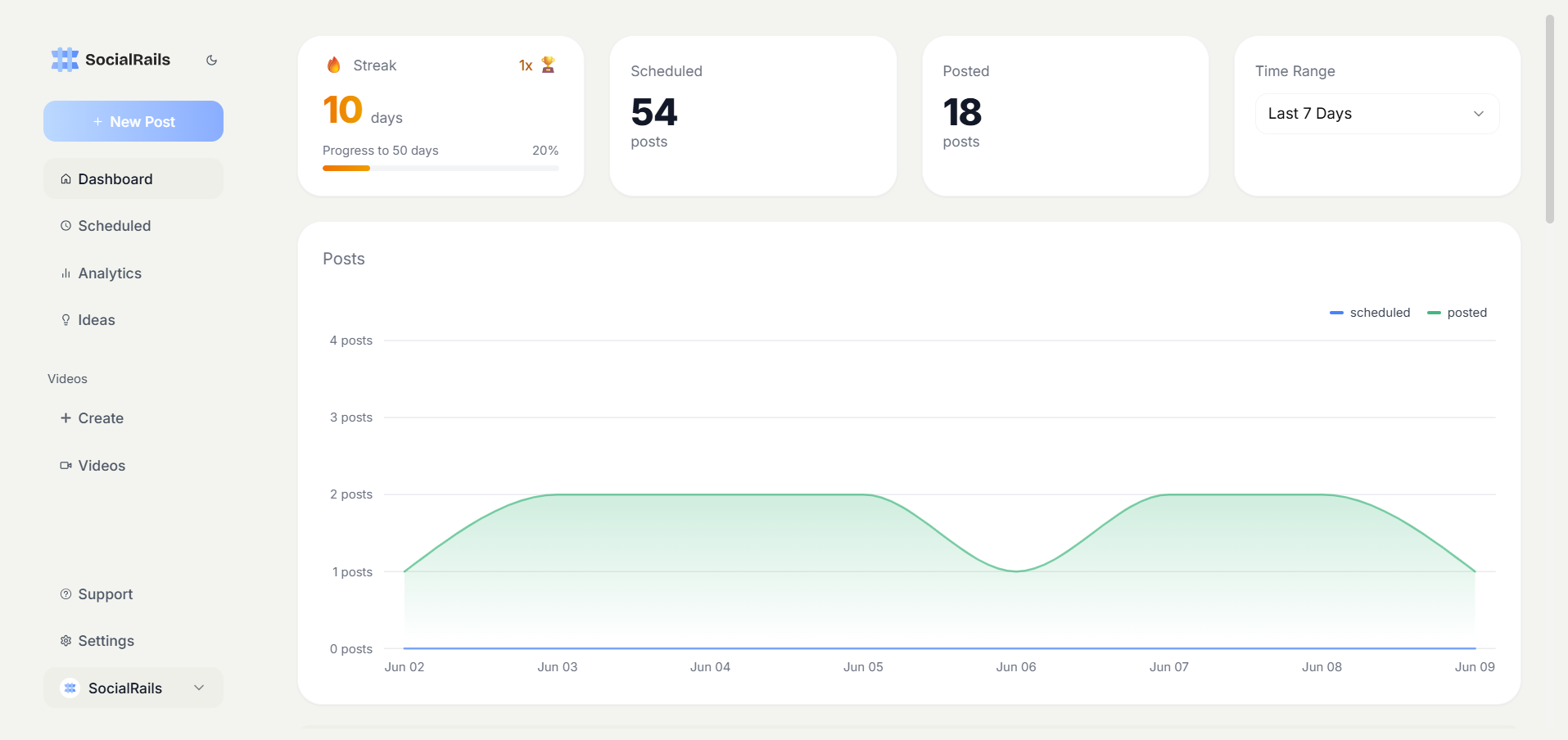
Business Entity Options:
Essential Legal Requirements
Business Registration Steps:
- Choose Business Name: Check availability and register
- Register with State: File appropriate business formation documents
- Get EIN Number: Federal tax identification from IRS
- Business License: Check local and state licensing requirements
- Business Bank Account: Separate business and personal finances
- Business Insurance: Professional liability and general liability coverage
Legal Documents You'll Need:
- Service agreements and contracts
- Privacy policy and terms of service
- Non-disclosure agreements (NDAs)
- Employee or contractor agreements
- Trademark and copyright policies
Creator Collaboration Contracts: When partnering with content creators or influencers, proper legal protection is essential. Our Content Creator Contracts Guide provides templates and legal frameworks for these partnerships.
Skills and Tools Required
Essential Skills for Success
Technical Skills:
- Platform expertise (Instagram, Facebook, TikTok, LinkedIn, Twitter/X)
- Content creation and graphic design basics
- Basic photo and video editing
- Analytics interpretation and reporting
- Social media advertising (Facebook Ads, Instagram Ads)
- Search engine optimization (SEO) fundamentals
Business Skills:
- Project management and organization
- Client communication and relationship management
- Sales and business development
- Financial management and pricing
- Time management and productivity
- Problem-solving and strategic thinking
Essential Tools and Software
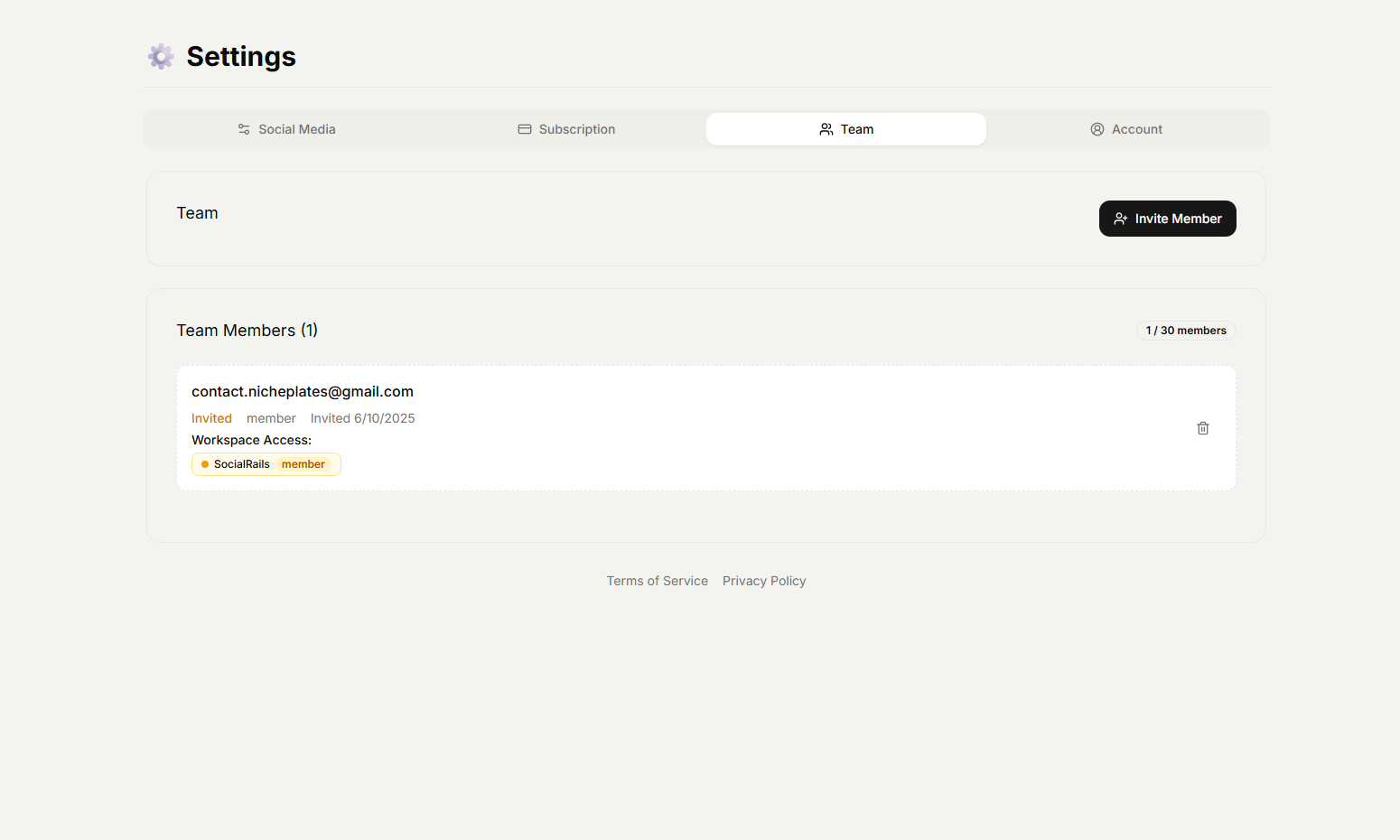
Content Creation Tools:
- SocialRails Content Suite - All-in-one content creation and scheduling
- Canva or Adobe Creative Suite - Graphic design and visual content
- Figma - Design collaboration and brand asset creation
- Video editing software (CapCut, Final Cut Pro, or Premiere Pro)
Management and Analytics Tools:
- SocialRails Analytics Dashboard - Client reporting and performance tracking
- Google Analytics - Website traffic and conversion tracking
- Project management tools (Asana, Trello, Monday.com)
- Time tracking software (Toggl, Harvest, Clockify)
Communication and Sales Tools:
- CRM software (HubSpot, Pipedrive, Salesforce)
- Email marketing platform (Mailchimp, ConvertKit, ActiveCampaign)
- Video conferencing (Zoom, Google Meet, Microsoft Teams)
- Proposal software (PandaDoc, Proposify, DocuSign)
Service Offerings and Packages
Core Service Categories
Content Creation Services:
- Social media strategy development
- Content calendar planning and creation
- Graphic design for social media posts
- Video content production and editing
- Copywriting for social media and ads
- Brand voice development and guidelines
Management and Engagement Services:
- Daily social media management and posting
- Community management and customer service
- Hashtag research and optimization
- Influencer outreach and partnership management
- Crisis management and reputation monitoring
- Social media account setup and optimization
Advertising and Growth Services:
- Social media advertising campaign management
- Audience research and targeting strategy
- Ad creative development and testing
- Landing page creation and optimization
- Lead generation campaign development
- Conversion tracking and optimization
Service Package Examples
Starter Package ($500-1,000/month):
- 12-16 posts per month across 2 platforms
- Basic graphic design and content creation
- Hashtag research and optimization
- Monthly performance report
- Email support
Professional Package ($1,000-2,500/month):
- 20-30 posts per month across 3-4 platforms
- Custom graphics and some video content
- Community management and engagement
- Basic paid advertising management
- Bi-weekly performance reports
- Phone and email support
Premium Package ($2,500-5,000/month):
- Unlimited posts across all relevant platforms
- Full content creation including video production
- Advanced social media advertising
- Influencer outreach and partnerships
- Weekly performance reports and strategy calls
- Dedicated account manager
Finding and Acquiring Clients
Target Market Identification
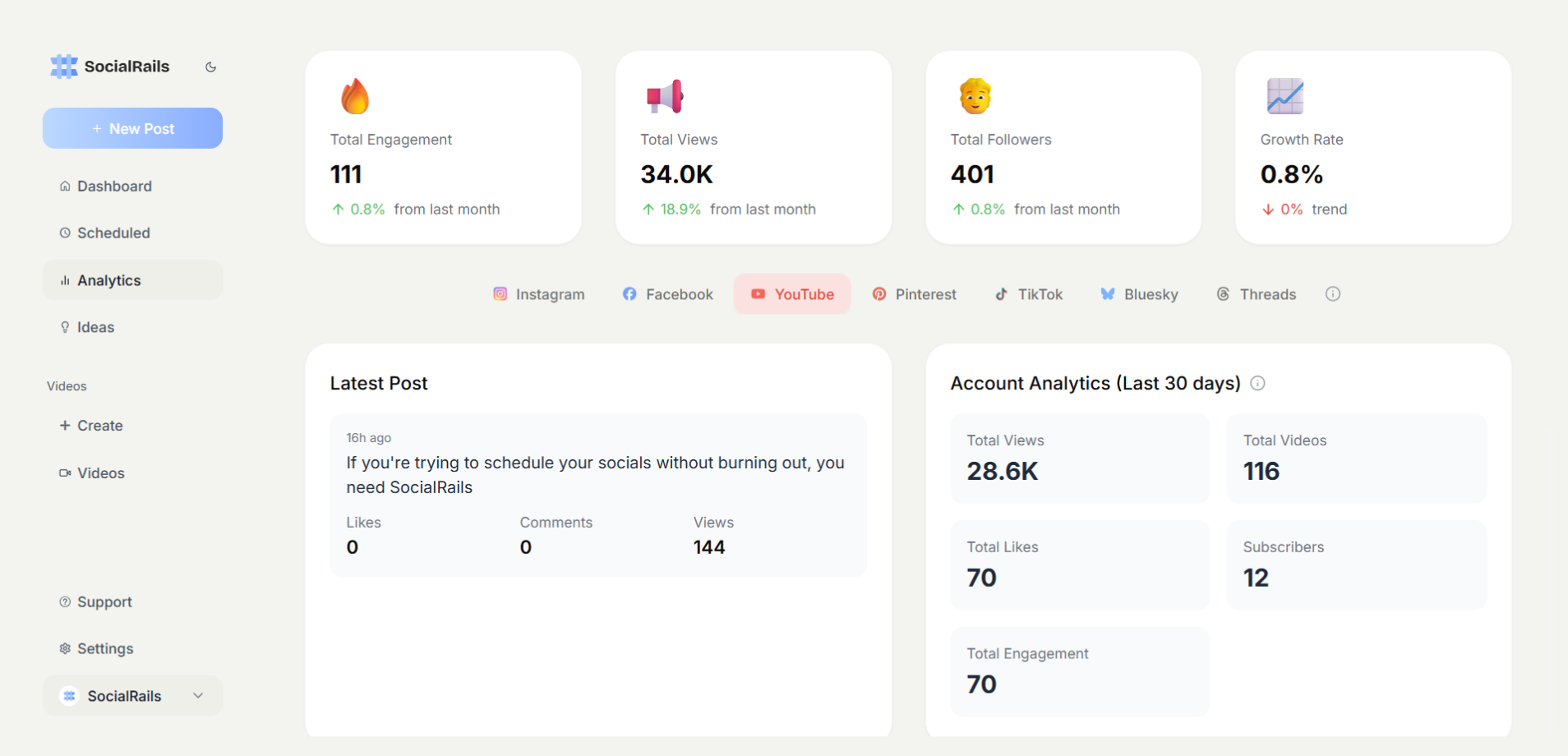
Ideal Client Characteristics:
- Small to medium businesses (10-100 employees)
- Annual revenue of $500K-$10M
- Limited internal marketing resources
- Already understand social media's value but lack time/expertise
- Growth-focused business owners and marketing managers
Industry Focus Options:
- Local Service Businesses: Restaurants, salons, gyms, law firms
- E-commerce Businesses: Online retailers and product brands
- B2B Companies: Software, consulting, professional services
- Healthcare Practices: Dentists, chiropractors, medical practices
- Real Estate Professionals: Agents, brokers, property management
Client Acquisition Strategies
Digital Marketing Methods:
- Content Marketing: Blog about social media strategy, create valuable resources
- Search Engine Optimization: Target keywords like "social media management [city]"
- Social Media Presence: Demonstrate expertise through your own channels
- Email Marketing: Newsletter with tips and industry insights
- Webinars and Online Events: Educational content that showcases expertise
Networking and Referral Methods:
- Local Business Organizations: Chamber of Commerce, BNI groups
- Industry Events: Marketing conferences, business meetups
- Partner Referrals: Web designers, marketing agencies, business consultants
- Client Referral Program: Incentivize existing clients to refer new business
- Community Involvement: Volunteer for local organizations and events
Direct Outreach Strategies:
- LinkedIn Prospecting: Connect with business owners and decision makers
- Cold Email Campaigns: Personalized outreach to potential clients
- Local Business Visits: Direct approach to local businesses
- Proposal Submissions: Respond to RFPs and service requests
- Social Media Engagement: Comment meaningfully on prospects' content
Pricing Strategies and Models
Common Pricing Models
Monthly Retainer Model:
- Pros: Predictable recurring revenue, long-term client relationships
- Cons: Fixed scope can lead to scope creep, longer sales cycles
- Best For: Ongoing social media management and content creation
Project-Based Pricing:
- Pros: Clear scope and timeline, higher profit margins possible
- Cons: Unpredictable revenue, constant sales efforts needed
- Best For: Strategy development, account setup, specific campaigns
Hourly Pricing:
- Pros: Fair compensation for actual time spent, easy to adjust scope
- Cons: Clients may micromanage time, revenue cap based on hours available
- Best For: Consulting, ad-hoc services, new relationships
Performance-Based Pricing:
- Pros: Aligned incentives, potential for high earnings
- Cons: Income uncertainty, requires detailed tracking
- Best For: Advertising management, lead generation campaigns
Pricing Guidelines by Service Type
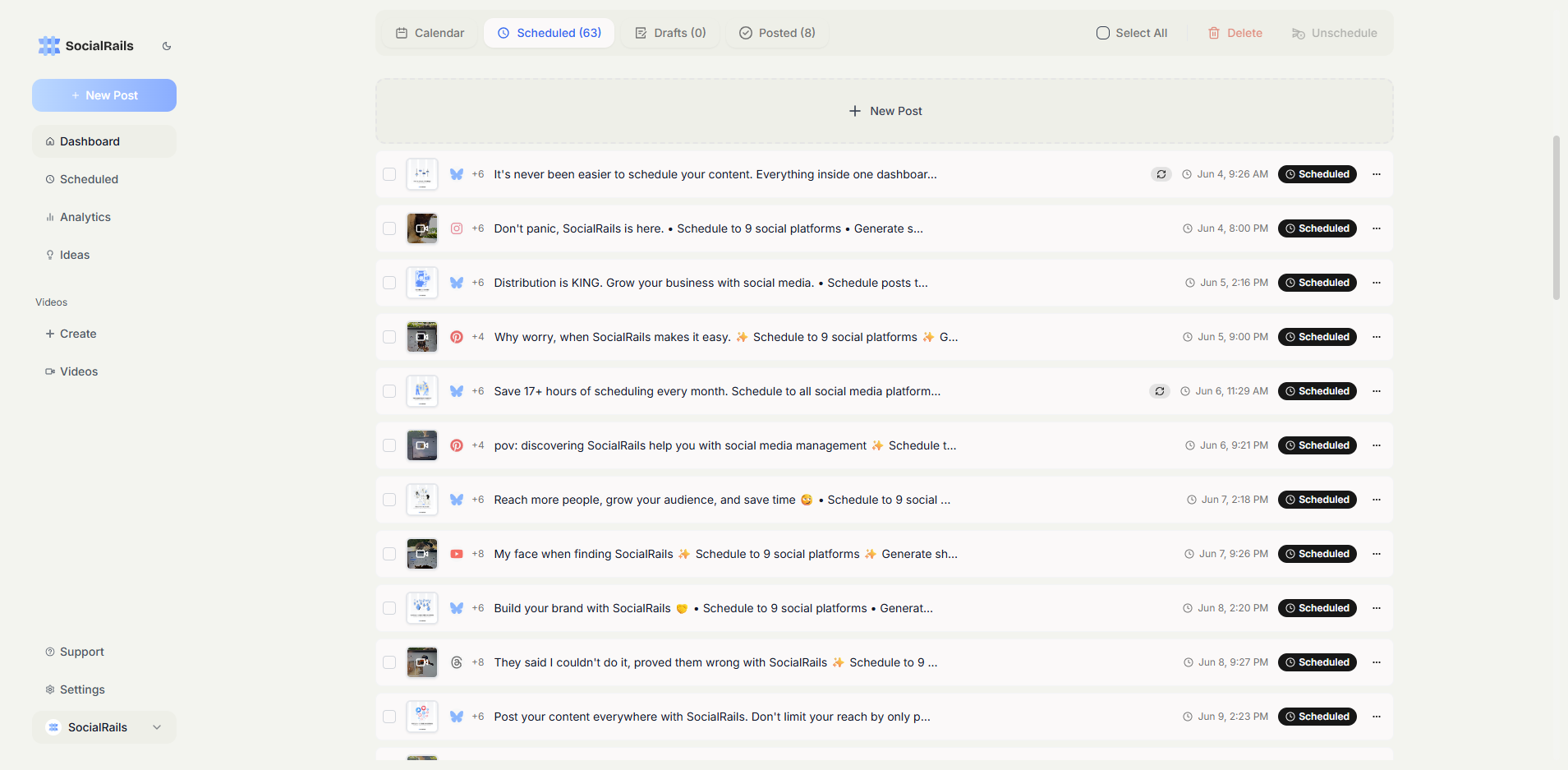
Social Media Management:
- Basic Package: $500-1,200/month (2-3 platforms, 8-12 posts)
- Standard Package: $1,200-2,500/month (3-4 platforms, 16-24 posts)
- Premium Package: $2,500-5,000/month (All platforms, unlimited posts)
Content Creation:
- Single Posts: $25-75 per post depending on complexity
- Video Content: $100-500 per video depending on production level
- Graphics and Design: $50-200 per design depending on complexity
- Content Strategy: $500-2,000 for detailed strategy development
Advertising Management:
- Setup Fee: $500-1,500 for initial campaign setup
- Management Fee: 15-25% of ad spend monthly
- Minimum Monthly Fee: $750-1,500 regardless of ad spend
- Performance Bonus: Optional bonus for meeting specific metrics
Client Onboarding Process
Discovery and Strategy Phase
Initial Client Consultation:
- Business Goals Assessment: Understand client's overall business objectives
- Current Social Media Audit: Review existing presence and performance
- Target Audience Analysis: Define ideal customer personas
- Competitive Research: Analyze competitors' social media strategies
- Platform Strategy: Determine which platforms to focus on
- Success Metrics: Establish KPIs and measurement criteria
Strategy Document Creation:
- Social Media Strategy Overview: 2-3 page summary of approach
- Content Calendar Template: Framework for ongoing content planning
- Brand Guidelines: Visual and voice consistency standards
- Posting Schedule: Optimal times and frequency for each platform
- Hashtag Strategy: Research and categorization of relevant hashtags
Implementation Setup
Account Setup and Optimization:
- Profile Optimization: Bio, photos, contact information, business details
- Visual Branding: Consistent profile images, cover photos, highlights
- Business Account Features: Analytics access, contact buttons, shopping features
- Link Strategy: Bio links, story links, website integration
- Analytics Setup: Tracking pixels, conversion events, goal configuration
Process and Communication Setup:
- Project Management: Set up shared workspace and task tracking
- Communication Protocols: Regular check-ins, reporting schedule, emergency contacts
- Content Approval Process: Review workflow, revision cycles, approval timelines
- Access and Permissions: Account access, tool subscriptions, team member roles
- Legal Documentation: Signed contracts, NDAs, usage rights agreements
Content Creation and Management
Content Strategy Development
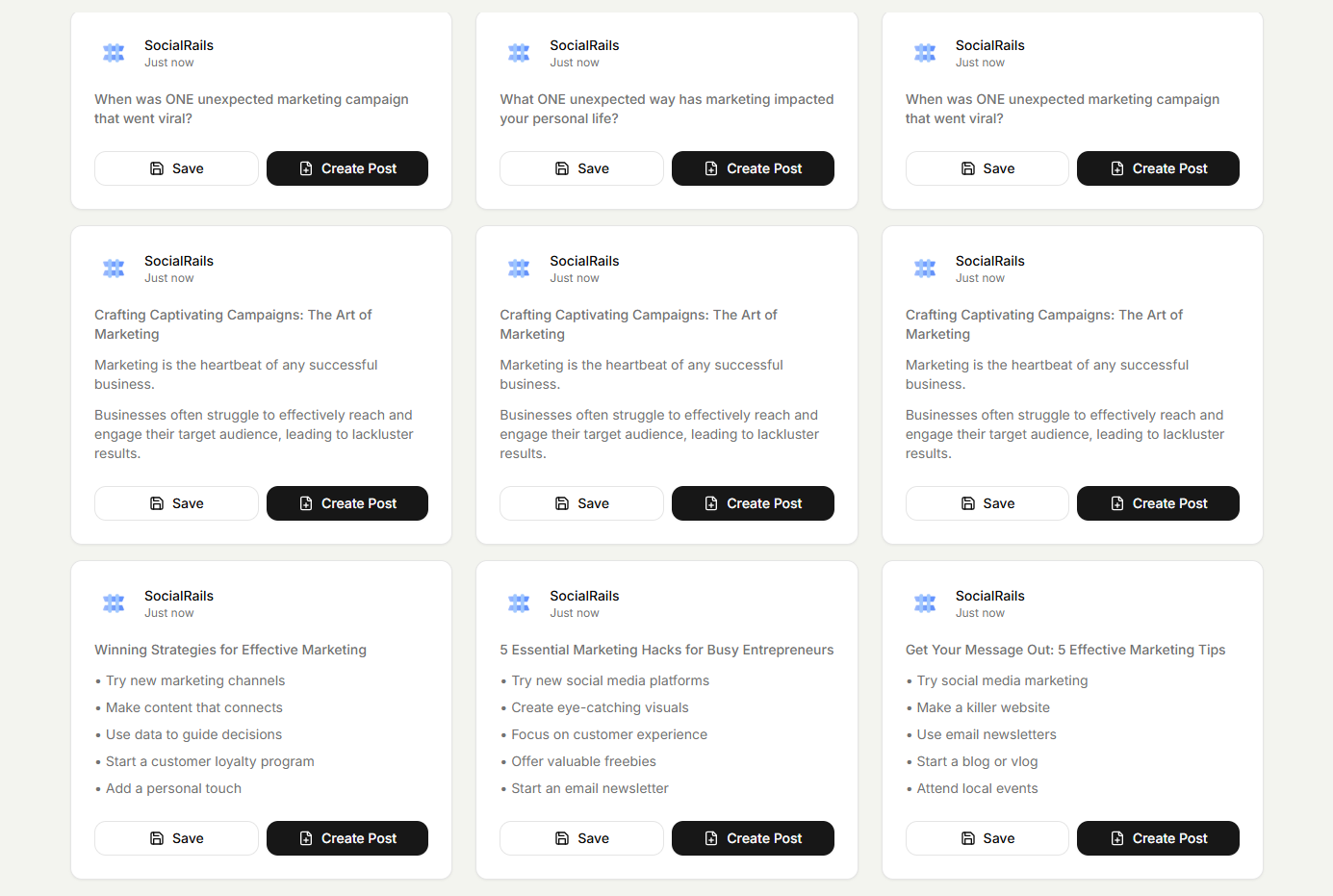
Content Pillar Framework:
- Educational Content (40%): Tips, tutorials, industry insights
- Behind-the-Scenes Content (20%): Company culture, processes, team highlights
- User-Generated Content (20%): Customer testimonials, reviews, community features
- Product/Service Content (15%): Features, benefits, demonstrations
- Entertainment Content (5%): Trending topics, humor, lifestyle content
Content Planning Process:
- Monthly Strategy Review: Assess performance and adjust content themes
- Weekly Content Planning: Brainstorm ideas and assign creation tasks
- Content Creation: Write copy, design graphics, produce videos
- Review and Approval: Client review cycle and feedback implementation
- Scheduling and Publishing: Queue content using management tools
- Engagement Monitoring: Respond to comments and messages promptly
Content Creation Workflow
Efficient Content Production:
- Batch Content Creation: Dedicate specific days to content creation
- Template Systems: Develop reusable templates for consistent branding
- Content Repurposing: Adapt single pieces of content across multiple platforms
- User-Generated Content Integration: Feature customer content regularly
- Trending Content: Monitor and participate in relevant trends quickly
Quality Control Standards:
- Brand Consistency: All content aligns with brand voice and visual identity
- Error Checking: Proofreading for grammar, spelling, and accuracy
- Platform Optimization: Content formatted properly for each platform
- Link Verification: All external links work and direct to intended destinations
- Legal Compliance: Proper attribution, permissions, and disclosure requirements
Team Building and Scaling
Hiring Your First Employees
Key Roles to Consider:
- Content Creator/Designer: Handles visual content creation and basic design
- Community Manager: Manages engagement, responds to comments and messages
- Social Media Strategist: Develops strategies and analyzes performance
- Account Manager: Client communication and relationship management
- Video Editor: Specializes in video content production and editing
Hiring Best Practices:
- Start with Contractors: Test working relationships before full-time hires
- Portfolio Review: Evaluate actual work samples, not just resumes
- Culture Fit Assessment: Ensure alignment with your company values
- Skill Testing: Practical tests for content creation, writing, or strategy
- Reference Checks: Speak with previous employers or clients
Scaling Operations
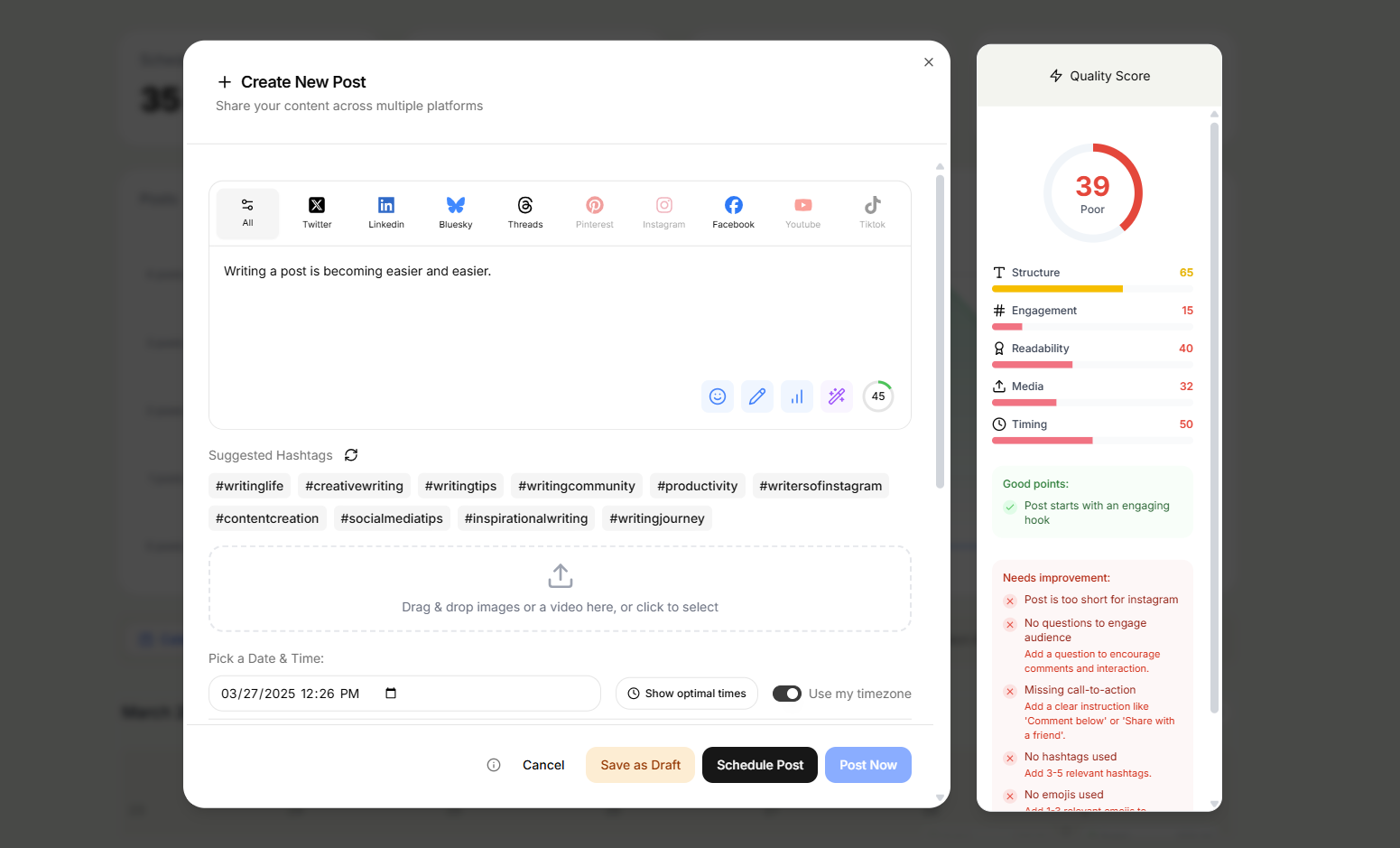
Process Systematization:
- Standard Operating Procedures: Document all repeatable processes
- Template Creation: Develop templates for proposals, contracts, reports
- Quality Assurance: Create checklists and review processes
- Client Communication: Standardize check-in schedules and reporting formats
- Tool Integration: Automate repetitive tasks where possible
Growth Management:
- Client Portfolio Balance: Diversify across industries and service types
- Pricing Evolution: Increase rates as expertise and demand grow
- Service Expansion: Add complementary services based on client needs
- Geographic Expansion: Consider serving clients in new markets
- Niche Specialization: Develop expertise in specific industries or services
Financial Management
Budgeting and Cash Flow
Startup Costs (First 6 Months):
- Business Setup: $500-1,500 (registration, legal, insurance)
- Tools and Software: $200-500/month (social media tools, design software)
- Marketing and Sales: $500-2,000 (website, business cards, advertising)
- Operating Expenses: $500-1,500/month (phone, internet, office supplies)
- Emergency Fund: 3-6 months of operating expenses
Revenue Projections:
- Month 1-3: $1,000-3,000 (initial clients, lower rates)
- Month 4-6: $3,000-8,000 (growing client base, improved processes)
- Month 7-12: $5,000-15,000 (established reputation, higher rates)
- Year 2: $10,000-30,000 (scaled operations, team members)
Pricing and Profitability
Cost Structure Analysis:
- Direct Costs: Tools, software subscriptions, contractor payments
- Indirect Costs: Marketing, admin time, business development
- Labor Costs: Your time plus any employee or contractor costs
- Overhead: Office space, utilities, insurance, professional services
Profit Margin Targets:
- Service-Based Work: 40-60% gross margin after direct costs
- Agency Model: 20-40% net margin after all expenses
- Growth Phase: Lower margins acceptable while building client base
- Mature Business: 30-50% net margins with optimized operations
Client Retention and Growth
Delivering Results That Matter

Key Performance Indicators to Track:
- Follower Growth: Consistent, engaged audience building
- Engagement Rates: Likes, comments, shares, saves relative to followers
- Website Traffic: Social media driving visitors to client website
- Lead Generation: Contact forms, phone calls, email signups from social
- Sales Attribution: Revenue traced to social media efforts
Monthly Reporting Best Practices:
- Executive Summary: Key achievements and insights in 2-3 sentences
- Performance Metrics: Visual charts showing progress over time
- Content Highlights: Best-performing posts and why they succeeded
- Audience Insights: Demographics, behavior patterns, growth trends
- Strategic Recommendations: Specific suggestions for improvement
- Next Month Preview: Planned initiatives and expected outcomes
Building Long-Term Relationships
Client Success Strategies:
- Regular Strategy Reviews: Quarterly business reviews and goal adjustments
- Proactive Communication: Share industry trends and opportunities
- Additional Value: Offer complementary services as needs arise
- Problem Solving: Address issues quickly and transparently
- Success Celebration: Highlight and celebrate client achievements
Retention Rate Optimization:
- Onboarding Excellence: Set clear expectations and deliver early wins
- Consistent Performance: Meet or exceed agreed-upon metrics consistently
- Relationship Investment: Build personal relationships with client stakeholders
- Service Evolution: Adapt services as client needs change and grow
- Contract Renewals: Present compelling reasons to continue partnership
Common Challenges and Solutions
Typical Business Challenges
Client Acquisition Challenges:
- Problem: Difficulty finding qualified prospects
- Solution: Develop specialized expertise in specific industries or services
- Prevention: Build referral systems and maintain strong online presence
Pricing and Profitability Issues:
- Problem: Competing on price rather than value
- Solution: Focus on ROI and business results rather than activity metrics
- Prevention: Develop unique service offerings and demonstrate clear value
Scope Creep and Boundary Issues:
- Problem: Clients requesting additional work without compensation
- Solution: Clear contracts with defined scope and change order processes
- Prevention: Detailed service agreements and regular boundary reinforcement
Operational Challenges
Time Management Problems:
- Problem: Working too many hours without proportional revenue increase
- Solution: Systematize processes, delegate tasks, and raise prices
- Prevention: Track time investment per client and optimize regularly
Quality Control Issues:
- Problem: Inconsistent content quality or brand alignment
- Solution: Develop review processes and quality standards
- Prevention: Create detailed brand guidelines and approval workflows
Team Management Difficulties:
- Problem: Coordinating team members and maintaining quality
- Solution: Implement project management systems and regular team communication
- Prevention: Hire carefully and provide clear role definitions
Tools and Resources for Success
Essential Business Tools
For a complete breakdown of must-have tools, see our guide to social media marketing tools for agencies.
Management and Organization:
- SocialRails Team Dashboard - Manage multiple client accounts efficiently
- Project Management: Asana, Monday.com, or Trello for task coordination
- Time Tracking: Toggl or Harvest for accurate project time monitoring
- File Storage: Google Drive or Dropbox for client asset organization
Client Communication:
- CRM System: HubSpot or Pipedrive for lead and client management
- Proposal Tools: PandaDoc or Proposify for professional proposals
- Email Marketing: Mailchimp or ConvertKit for newsletter and nurturing
- Video Conferencing: Zoom or Google Meet for client meetings
Continuing Education Resources
Industry Learning:
- Social Media Examiner: Industry news and best practices
- Platform Creator Resources: Official learning materials from each platform
- Marketing Conferences: Social Media Marketing World, Content Marketing Conference
- Online Courses: Facebook Blueprint, Google Skillshop, platform certifications
Business Development:
- Small Business Administration: Free resources for business development
- SCORE Mentoring: Free business mentoring and workshops
- Industry Associations: Join relevant marketing and business organizations
- Networking Groups: Local business meetups and professional organizations
Success Metrics and Growth Tracking
Business Health Indicators
Financial Metrics:
- Monthly Recurring Revenue (MRR): Predictable income from retainer clients
- Client Lifetime Value (CLV): Average revenue per client relationship
- Customer Acquisition Cost (CAC): Cost to acquire new clients
- Profit Margins: Gross and net margins by service type
- Cash Flow: Monthly income vs. expenses and payment timing
Operational Metrics:
- Client Retention Rate: Percentage of clients retained year-over-year
- Team Utilization: Billable hours vs. total available hours
- Project Completion Time: Efficiency of service delivery
- Quality Scores: Client satisfaction and performance ratings
- Referral Rates: New clients from existing client referrals
Planning for Long-Term Success
Business Growth Strategies
Horizontal Expansion:
- Additional Services: Email marketing, website design, SEO services
- Platform Expansion: New social media platforms as they gain popularity
- Market Expansion: Serve new geographic markets or industries
- Partnership Development: Strategic partnerships with complementary businesses
Vertical Integration:
- In-House Production: Bring more services in-house vs. outsourcing
- Technology Development: Create proprietary tools or processes
- Training and Certification: Develop expertise-based revenue streams
- Franchise or Licensing: Scale through partner relationships
Exit Strategy Considerations
Business Valuation Factors:
- Revenue Consistency: Predictable monthly recurring revenue
- Client Diversification: No single client represents more than 15-20% of revenue
- Operational Systems: Documented processes that don't depend on owner
- Team Independence: Business can operate without owner involvement
- Growth Trajectory: Consistent year-over-year growth patterns
Conclusion
Starting a social media marketing business offers significant opportunities for entrepreneurs willing to invest in learning, building systems, and delivering consistent results for clients. Success requires combining technical social media expertise with fundamental business skills like sales, client management, and financial planning.
Key Success Factors:
- Develop Real Expertise: Stay current with platform changes and marketing best practices
- Focus on Client Results: Measure and deliver meaningful business outcomes
- Build Scalable Systems: Create processes that work without your constant involvement
- Price for Profitability: Charge rates that allow for quality service and business growth
- Invest in Relationships: Long-term client relationships are more valuable than quick transactions
The social media marketing industry continues to evolve rapidly, creating ongoing opportunities for agencies that adapt quickly and deliver consistent value to their clients.
Ready to Start Your Social Media Marketing Business?
Building a successful social media marketing business requires the right tools, systems, and knowledge. SocialRails provides everything you need to serve clients professionally:
- Client Management: Handle multiple accounts with team collaboration features
- Content Creation: Professional tools for creating engaging social media content
- Analytics and Reporting: Detailed performance tracking and client reporting
- Automation: Streamline repetitive tasks to focus on strategy and growth
Start Your Business Today | Explore Business Tools
Frequently Asked Questions
How much does it cost to start a social media marketing business?
Startup costs range from $2,000-8,000 for the first 6 months, including business setup ($500-1,500), tools and software ($200-500/month), marketing ($500-2,000), and operating expenses. You also need an emergency fund of 3-6 months operating expenses.
What qualifications do I need to start a social media marketing business?
No formal qualifications are required, but you need expertise in social media platforms, content creation, basic design, analytics interpretation, and business skills like client communication, sales, and project management. Consider getting certified through Facebook Blueprint or Google Skillshop.
How much can I charge for social media marketing services?
Pricing varies widely: Basic packages $500-1,200/month, Standard packages $1,200-2,500/month, Premium packages $2,500-5,000/month. Individual posts cost $25-75, video content $100-500, and advertising management typically charges 15-25% of ad spend plus a minimum monthly fee.
How do I find my first social media marketing clients?
Start with networking in local business organizations, create valuable content to demonstrate expertise, reach out to businesses with weak social media presence, leverage LinkedIn for prospecting, and ask friends and family for referrals. Focus on small to medium businesses with limited marketing resources.
What business structure is best for a social media marketing agency?
Most choose LLC for limited liability and tax flexibility. Sole proprietorship works for solo freelancers starting out, while S-Corporation suits growing businesses with employees. Consider factors like personal liability, tax implications, and growth plans when deciding.
What tools do I need for social media marketing business?
Essential tools include content creation software (Canva, Adobe Creative Suite), social media management platforms (SocialRails, Buffer, Hootsuite), analytics tools (Google Analytics), project management software (Asana, Trello), and CRM systems for client management.
How long does it take to build a profitable social media marketing business?
Most businesses become profitable within 6-12 months. Expect $1,000-3,000 revenue in months 1-3, $3,000-8,000 in months 4-6, and $5,000-15,000 in months 7-12. Building a solid client base and reputation takes time and consistent effort.
Should I specialize in specific industries or platforms?
Specialization often leads to higher rates and better results. Consider focusing on industries you understand (healthcare, restaurants, e-commerce) or specific platforms where you excel. This helps you develop deeper expertise and charge premium prices.
When should I hire employees for my social media marketing business?
Start hiring when you're consistently earning $8,000-10,000/month and have more work than you can handle. Begin with contractors for specific tasks (content creation, community management) before hiring full-time employees. Ensure you have systems and processes in place first.
What are the biggest challenges in running a social media marketing business?
Common challenges include client acquisition, scope creep, maintaining consistent quality, time management, staying current with platform changes, and scaling operations. Success requires clear contracts, efficient processes, ongoing education, and strong client relationships.
Related Resources
- Social Media Analytics Guide - Measuring and reporting client results
- Instagram Marketing Guide - Platform-specific expertise development
Was this article helpful?
Let us know what you think!
